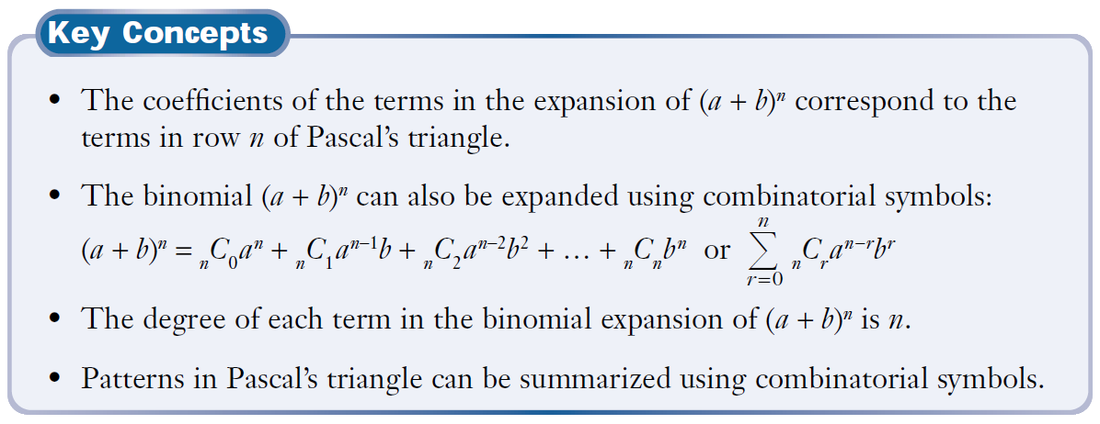It is given that the coefficient of $ \displaystyle {{x}^{2}}$ is equal to the coefficient of $ \displaystyle {{x}^{3}}$ in the binomial expansion of $ \displaystyle {{(2k\text{ }+\text{ }x)}^{n}}$, where $ \displaystyle k$ is a constant and $ \displaystyle n$ is a positive integer. Prove that $ \displaystyle n=6k+2$.
Solution
$ \displaystyle {{(r+1)}^{{th}}}$ term in the expansion of $ \displaystyle {{(2k\text{ }+\text{ }x)}^{n}}={}^{n}{{C}_{r}}{{(2k)}^{{n-r}}}{{x}^{r}}$
For $ \displaystyle {{x}^{2}}$, $ \displaystyle r=2$
$ \displaystyle \therefore $ coefficient of $ \displaystyle {{x}^{2}}={}^{n}{{C}_{2}}{{(2k)}^{{n-2}}}$
For $ \displaystyle {{x}^{3}}$, $ \displaystyle r=3$
$ \displaystyle \therefore $ coefficient of $ \displaystyle {{x}^{3}}={}^{n}{{C}_{3}}{{(2k)}^{{n-3}}}$
By the problem,
Coefficient of $ \displaystyle {{x}^{2}}=$ Coefficient of $ \displaystyle {{x}^{3}}$
$ \displaystyle \therefore {}^{n}{{C}_{2}}{{(2k)}^{{n-2}}}={}^{n}{{C}_{3}}{{(2k)}^{{n-3}}}$
$ \displaystyle \therefore \frac{{n(n-1)}}{{1\times 2}}(2k)=\frac{{n(n-1)(n-2)}}{{1\times 2\times 3}}$
$ \displaystyle \therefore 2k=\frac{{n-2}}{3}$
$\displaystyle \therefore n=6k+2$
Solution
$ \displaystyle {{(r+1)}^{{th}}}$ term in the expansion of $ \displaystyle {{(2k\text{ }+\text{ }x)}^{n}}={}^{n}{{C}_{r}}{{(2k)}^{{n-r}}}{{x}^{r}}$
For $ \displaystyle {{x}^{2}}$, $ \displaystyle r=2$
$ \displaystyle \therefore $ coefficient of $ \displaystyle {{x}^{2}}={}^{n}{{C}_{2}}{{(2k)}^{{n-2}}}$
For $ \displaystyle {{x}^{3}}$, $ \displaystyle r=3$
$ \displaystyle \therefore $ coefficient of $ \displaystyle {{x}^{3}}={}^{n}{{C}_{3}}{{(2k)}^{{n-3}}}$
By the problem,
Coefficient of $ \displaystyle {{x}^{2}}=$ Coefficient of $ \displaystyle {{x}^{3}}$
$ \displaystyle \therefore {}^{n}{{C}_{2}}{{(2k)}^{{n-2}}}={}^{n}{{C}_{3}}{{(2k)}^{{n-3}}}$
$ \displaystyle \therefore \frac{{n(n-1)}}{{1\times 2}}(2k)=\frac{{n(n-1)(n-2)}}{{1\times 2\times 3}}$
$ \displaystyle \therefore 2k=\frac{{n-2}}{3}$
$\displaystyle \therefore n=6k+2$
စာဖတ်သူ၏ အမြင်ကို လေးစားစွာစောင့်မျှော်လျက်!

